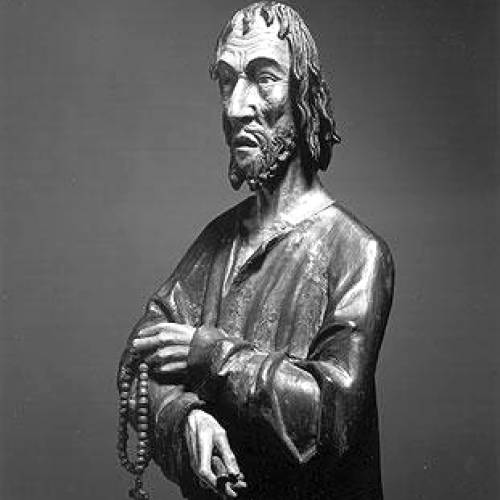 https://heaven.world/en/bruder-klaus
https://heaven.world/en/bruder-klaus
Firstname
Bruder
Lastname
Klaus
Name
Bruder Klaus
lived from:
1417-01-01
lived until:
1487-03-21
Niklaus von Flue was born into a peasant family Obwalden. His father was Heinrich von Flue, his mother was called Hemma Ruobert. From 1440 to 1444 took Niklaus von Flue as an officer at the Old Zurich War in part. After the war he married Dorothea Wyss, with whom he had ten children. He lived as for that time wealthy farmer, was councilor of the Canton and judge his community. 1467, the youngest child was a year old, the eldest son Hans, however, twenty, so that it could feed a peasant family, Niklaus left with the consent of his wife his family to become a hermit. He first made a pilgrimage towards the Upper Rhine. After he had experienced on his journey, according to legend in Windental above Liestal a vision, he turned around and then settled in the Ranft gorge, just a few minutes from his house, as a hermit down. In his cell he led as Brother Klaus an intense life of prayer, the focus of his considerations was the depression in the suffering of Christ. Again and again he will have been plagued by intense visions first to even took place in the womb. Supposedly he took in the last 19 years of his life except Holy Communion nothing and drank only water. This was confirmed by the bishop responsible for an investigation. According to other sources Niklaus has negated von Flüe to ask if he had nothing further had actually consumed it or not confirmed. Therefore, he is often depicted by the visual arts as a gaunt, bearded man with a stick and the "Baetti", a rosary with 50 beads, for the rosary, it did not yet exist. Some of his descendants held high offices and acquired political influence. Particularly well known is his grandson Konrad Scheuber (1481-1559), who became known as Landamman and judges, as well as a clever mind and devout hermit in the history of Switzerland. On March 21, 1487 died brother Klaus after hard agony on the floor of his cell. Already at the consecration of the upper Ranft chapel, which is attached to the hermit cell in Ranft, General and Suffragan Bishop Thomas Weldner of Konstanz had decreed on 27 April 1469 that Brother Klaus is to be buried von Flue after his death in his parish church. Accordingly, he was buried in the old parish church Sachseln. This was absolutely exceptional for a layman in rural areas.
Sachseln (OW), Switzerland
http://www.bruderklaus.com/?id=2